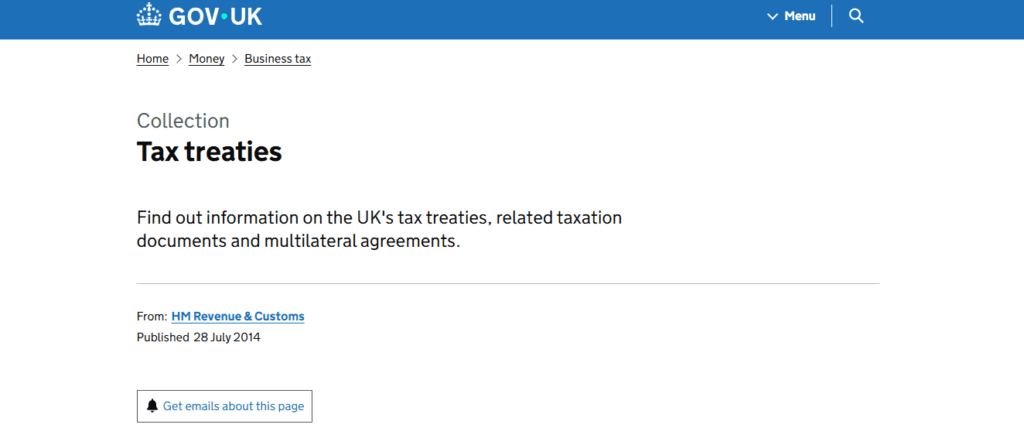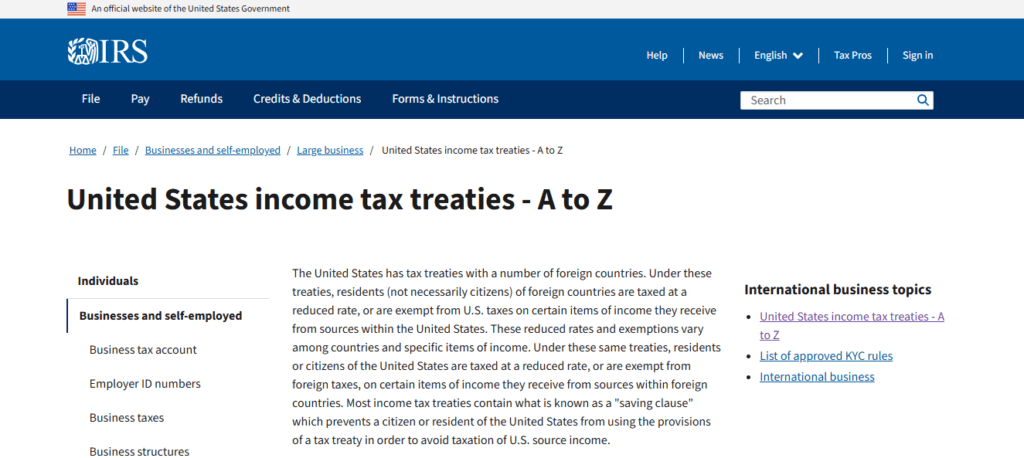Your Guide to Tax Treaties & Avoiding Double Taxation!
Welcome, everyone, to today’s video. We’ll be diving into how to avoid double taxation when living abroad. First we will talk you through some theoretical issues. Next we will see how it applies to different countries, like the US and the UK.
First and foremost, what is double taxation?
Double taxation occurs when a taxpayer is taxed on the same income by more than one country. It happens to retirees living abroad, that my be taxed in their country of citizenship and in the country of residence.
Tax treaties
To avoid double taxation, countries sign tax treaties. There are two main models for double taxation treaties:
-The United Nations (UN) convention applies the Source Principle: Income is taxed in the country where it is generated.
-The Organisation for Economic Co-operation and Development (OECD) convention advocates for the Residence Principle: Taxation is based on the taxpayer’s residence.
As an example, Both the United States and the United Kingdom negotiate their double tax treaties based on the OECD Model.
While the UN (United Nations) Model Tax Convention on Income and on Capital is another influential model, it is more commonly used by some developing countries.
How does it work? Practical tips
Now, let’s discuss some practical tips individuals to avoid falling victim to double taxation.
Accessing Tax Agreements – IRS and HMRC
Both the IRS and HMRC offer user-friendly online portals that make accessing information on tax agreements convenient:
-IRS Tax Treaties Webpage:
The IRS website provides an extensive list of tax treaties between the United States and other countries. Publication 901 offers detailed information on each treaty and the benefits they provide.
Tax Treaty Tables show tax rates on various types of income for each tax treaty country. This is IRS in USA.
-HMRC’s Online Resources:
For our friends in the United Kingdom, HMRC offers valuable resources to help navigate international tax matters:
Double Taxation Relief Manual: This manual, available on the HMRC website, provides detailed guidance on the UK’s rules for relieving double taxation, including the operation of tax treaties.
List of Double Taxation Treaties: HMRC maintains an up-to-date list of all the double taxation treaties to which the UK is a party. This includes links to the text of each treaty.

HMRC International Manual: This resource covers a wide range of international tax issues, providing in-depth information on topics such as residence, permanent establishments, and transfer pricing. This is HMRC in UK.
Tax Administration in your country of residence
The same applies to the tax administration in your country of residence.
- Determine Tax Residency:
Individuals are usually taxed based on their residency status. Tax treaties often include specific criteria for determining residency.
- Identify Types of Income:
Classify the various types of income earned. Different income categories (such as employment income, business profits, dividends, interest, and royalties) may be subject to specific treaty provisions.
- Apply Treaty Provisions:
Consult the relevant tax treaty to understand how each type of income is treated. Tax treaties allocate taxing rights between the two countries involved, specifying which country has the primary right to tax each type of income.
Most tax treaties include two mechanisms to prevent double taxation: exemption or a tax credit.
Exemption: The country of residence for tax purposes may exempt certain types of income from taxation, leaving the other country with the primary taxing right.
Tax Credit: The country of residence may tax the income but provide a tax credit for taxes paid to the other country, effectively reducing the overall tax liability.
- Document Compliance:
You need to follow specific procedures to claim treaty benefits. This often involves completing additional forms or sections in the tax declaration, indicating the reliance on a particular treaty provision.
It’s essential to maintain proper documentation, including proof of residency, details of income earned in each country, and evidence of taxes paid or withheld. This documentation may be required in case of an audit or inquiry by tax authorities.
Conclusion About Double Taxation
In summary, a tax treaty provides a framework for determining which country has the primary right to tax specific types of income. It helps to avoid or mitigate the impact of double taxation. Understanding the provisions of the relevant tax treaty is crucial when filing a tax declaration.
Are you interested in relocating? Take a look at this information:

